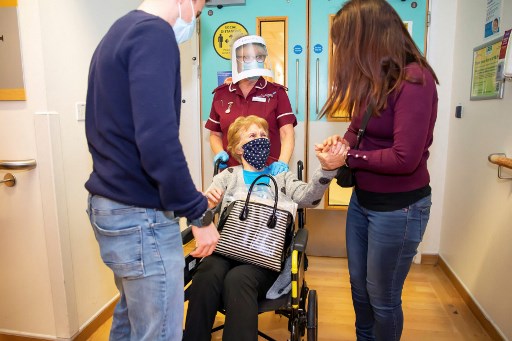KUALA LUMPUR, March 4 — Global sentiment on Covid-19 vaccines became favourable soon after the first person was inoculated last December 8, an international social media analytics and monitoring platform found.
In a report titled “Industry Report Pharma and Health care, Racing for a vaccine: Covid-19 and the evolution of pharma”, Talkwalker said conversations in the United Kingdom spiked when the UK approved the Pfizer-BioNTech Covid-19 vaccine on December 2 for emergency use authorisation.
However, Talkwalker noted that the early start of the United Kingdom vaccination campaign did translate into anxious conversations among segments of the population, who wondered if the approval had been rushed and if they could trust the Pfizer vaccine.
“Messaging from the right influencer is a powerful tool to drive positive conversations about the vaccine,” Talkwalker’s report said.
“Fluctuating sentiment shows that people are unsure about vaccines, and identifying the right influencer goes a long way to build confidence and trust for pharmaceutical companies.”
Talkwalker highlighted that when influencers and role models such as former US presidents Barack Obama, George W. Bush, and Bill Clinton, and current US president Joe Biden showed their support for Covid-19 vaccination, more conversations revolved around the importance of promoting the vaccine, generating confidence, and showing that it is a safe procedure.
In Talkwalker’s analysis of conversations of Generation Z, Talkwalker found that between November and December 2020, Generation Z was feeling more fearful towards Covid-19 vaccine and the potential side-effects that these may bring.
Among the clusters of conversation include, anti-vaccine conversations (12.3 per cent), thoughts on vaccines becoming a requirement (12 per cent), approvals of Pfizer’s vaccine (11 per cent), side effects and effectiveness (9.9 per cent), health care workers first to receive the vaccines (9.2 per cent), fear about the virus and the vaccine (nine per cent), questions about mRNA vaccines (7.4 per cent), world leaders taking the vaccine first (7 per cent), and opinions about injections (3.8 per cent).
“One of the largest clusters was that of anti-vaccine conversations, where we found comments in favour and against the movement,” said Talkwalker.
“On one side, we saw posts that misinterpreted efficacy and survival rates, and on the other, we saw people trying to explain how anti-vaxxer groups organise and use harassment to spread their message. “
It was also noted that as compared to Western vaccines, Russian and Chinese products received much less attention.
Meanwhile, the Chinese Sinopharm vaccine was most discussed in Spanish-speaking countries, especially in Latin America, compared to English-speaking regions.








